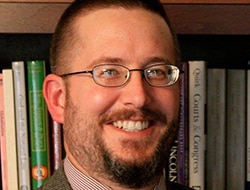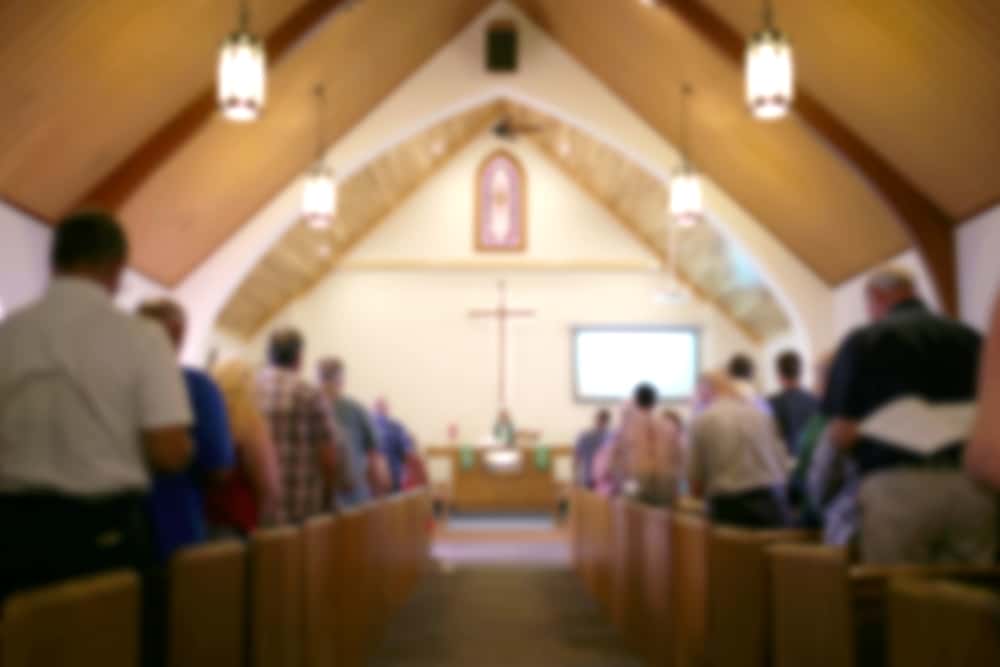
This Divine Mercy Sunday was a beautiful day here in northeastern Indiana, with blue skies and temperatures in the low 60s. On this Octave of Easter, we watched the Mass that Father Tony Steinacker, our pastor at Sts. Peter and Paul here in Huntington, had recorded for the Second Sunday of Easter. The Gospel for Thomas Sunday is always the same, John 20:19-31, the story of Doubting Thomas, who had to see the Lord with his own eyes before he would believe that Christ had risen.
Traditionally, on this Dominica in albis depositis (the Sunday of the Removal of the White Garments), those who had been baptized at the Easter Vigil took off the white robes that they had worn all week long as a symbol of their new life in Christ, which is why it is known as White Sunday in English. Victor Hugo’s Hunchback of Notre Dame was given the name Quasimodo by the archdeacon who found him as a baby, abandoned on the doorstep of Notre Dame Cathedral on this Quasimodo Sunday, so called because Quasi modo are the first words of the Introit, or entrance antiphon, of the Mass for Low Sunday, as it’s known across the channel in England.
There are a few other names applied to this day — the Feast of Mercy (another reference to the Divine Mercy), Antipascha (in the Eastern Churches, relating it back to Pascha, Easter), Renewal Sunday (because it’s the first Sunday after the resurrection of Christ, so the first on which that resurrection is commemorated or renewed).
If there is another Sunday, or indeed any day of the year, that has so many different names signifying so many different aspects of the day, I don’t know what it is. I first became aware of this diversity in the early 1990’s, when Amy and I attended Epiphany of Our Lord Byzantine Catholic Church in Annandale, Virginia, where Thomas Sunday was celebrated not as a cautionary tale of Thomas’ doubt (as we tend to view it in the West) but as a model of how we should profess our faith (“Blessed are those who have not seen and have believed”). At Epiphany, the Divine Liturgy for this Sunday was followed by a breakfast, which itself symbolized the gathering of the disciples in the Upper Room on the first day of the week to break bread together.
Divine Mercy Sunday was not as well known back then, and indeed I learned the traditional names for this Sunday — Dominica in albis depositis, Quasimodo Sunday, Low Sunday — from Father Brian A.T. Bovee (the rector of St. Mary Oratory in Rockford, Illinois, for two decades) before Divine Mercy Sunday really gained ground in the last decade of Pope St. John Paul II’s pontificate. As I’ve learned more about the history of this Sunday, I have found in every one of these titles an endless source for meditation, because each one unveils a bit of the mystery of this day.
This year it was Divine Mercy Sunday that stood out for me, in part because (as I mentioned yesterday) this was the first year that we have prayed the Divine Mercy Novena as a family, but also because, in the midst of this current pandemic, the second reading for today took on added meaning. St. Peter’s introduction to his first letter starts with the mercy of God and ties it to our new birth through the resurrection of Christ. The inheritance that Christ gained for us is “imperishable, undefiled, and unfading.”
But then comes the kicker: “In this you rejoice, although now for a little while you may have to suffer through various trials, so that the genuineness of your faith, more precious than gold that is perishable even though tested by fire, may prove to be for praise, glory, and honor at the revelation of Jesus Christ.”
“For a little while”: Yes. Our separation from our parishes, from the sacraments, from communal worship is a trial, and one that we must suffer through. But if we, like Thomas, can profess “My Lord and my God!”, and if we trust in God’s mercy revealed in his son, Jesus Christ, our faith will only grow during this time.
Which brings a whole new meaning to Renewal Sunday.
Scott P. Richert is publisher for OSV.





